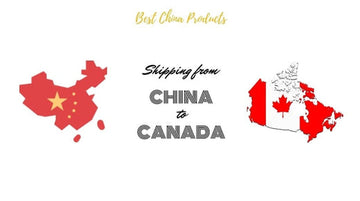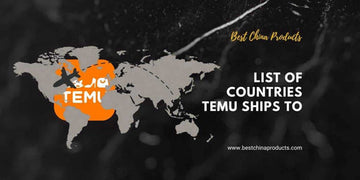When it comes to beauty products, knowing their origin can significantly influence purchasing decisions.
With its global reputation for delivering trendsetting makeup, Huda Beauty has captivated millions. Yet, many beauty enthusiasts wonder: are Huda Beauty products made in China?
In this review, we’ll explore the brand’s manufacturing practices, pinpointing where its most popular items are produced.
We’ll also address questions about product safety, quality, and what it means for discerning shoppers.
Also check out: Is Maybelline A Chinese Brand?
Are Huda Beauty Products Made In China?

Yes, according to the Huda Beauty website, the brand's products are manufactured in multiple countries, including China, Italy, and Germany.
The specific manufacturing location for a particular product will vary depending on the product type and other factors.
Huda Beauty products are manufactured in compliance with international safety standards. This means that Huda Beauty products have been tested and found to be safe for use.
Which Huda beauty products are made in China?

A significant portion of Huda Beauty products are made in China, including the following popular items:
- Obsessions eyeshadow palettes
- Mercury Retrograde eyeshadow palette
- FauxFilter Liquid Foundation
- GloWish Soft Radiance Sheer Foundation
- Legit Lashes Double-Ended Volume & Lengthening Mascara
- GloWish Soft Radiance Lip Balm
One easy way to tell if a Huda product is made in China is by looking for the Made in label at the back of the packaging.
Who owns Huda beauty?

Huda Beauty is owned by its founder, Huda Kattan. Kattan is a Dubai-based beauty blogger, makeup artist, and entrepreneur.
She launched Huda Beauty in 2013 with a line of false eyelashes, and the brand has since expanded to include a wide range of makeup products, including eyeshadow palettes, foundations, concealers, lipsticks, and more.
Kattan is one of the most influential beauty bloggers in the world, with over 50 million followers on Instagram. She is known for her glam makeup looks and her honest and informative product reviews. In 2017, she was named one of Time magazine's 100 Most Influential People in the World.
Huda Beauty is one of the fastest-growing beauty brands in the world. It is sold in over 1,500 retailers in over 70 countries. In 2021, the brand was valued at over $1 billion.
Is Huda beauty an American brand?

Huda Beauty is not an American brand. It is a Dubai-based cosmetics brand founded by Iraqi-American makeup artist and entrepreneur Huda Kattan in 2013.
The brand is known for its high-quality makeup products, including eyeshadow palettes, foundations, concealers, lipsticks, and more.
Huda Beauty products are sold in over 1,500 retailers in over 70 countries, including the United States. However, the brand is headquartered in Dubai and its products are manufactured in multiple countries, including China, Italy, and Germany.
Which Huda Beauty products are not made in China?

According to the Huda Beauty website, the following products are not made in China:
- GloWish Soft Radiance Brightening Powder
- Tantour Contour & Bronzer Cream
- GloWish Soft Radiance Creamy Powder Bronzer
- Lightwork Face Base
Please note that this list is not exhaustive and may change over time. It is always best to check the product packaging or the Huda Beauty website to confirm where a particular product was manufactured.
If you are looking for Huda Beauty products that are not made in China, you can try the products listed above. You can also look for Huda Beauty products that are labeled as "Made in the USA" or "Made in Italy." These products are guaranteed to be manufactured outside of China.
Where are Huda Beauty products made?

Huda Beauty products are manufactured in multiple countries, including China, Italy, and Germany. The specific manufacturing location for a particular product will vary depending on the product type and other factors.
It is important to note that not all makeup products made in China are unsafe. China is home to a number of world-class cosmetics manufacturers.
Many major international brands manufacture their products in China. Huda Beauty products manufactured in China are subject to the same rigorous safety standards as those produced in other countries
Are Huda beauty products cheaper in China?
No, Huda Beauty products are not cheaper in China even though they are made there. In fact, they are typically more expensive in China than in other countries.
In fact, a 2020 report by the cosmetics price comparison platform Cosmetify found that China is the most expensive market in the world for beauty products.
Also check out: Top 6 Fake AliExpress Lashes Ideal for Everyday Use 2023
Who manufactures Huda beauty products?

Huda Beauty products are manufactured by a number of different companies, depending on the product type and other factors. Some of the companies that manufacture Huda Beauty products include:
- Intercos: Intercos is an Italian cosmetics manufacturer that produces a wide range of products, including eyeshadow palettes, foundations, lipsticks, and mascaras. Intercos manufactures a number of Huda Beauty products, including the Obsessions eyeshadow palettes, the FauxFilter Liquid Foundation, and the Legit Lashes Double-Ended Volume & Lengthening Mascara.
- Cosmax: Cosmax is a South Korean cosmetics manufacturer that produces a wide range of products, including skincare, makeup, and hair care products. Cosmax manufactures a number of Huda Beauty products, including the GloWish Soft Radiance Sheer Foundation, the Glowish Soft Radiance Bronzing Powder, and the GloWish Soft Radiance Lip Balm.
- W Cosmetic: W Cosmetic is a Chinese cosmetics manufacturer that produces a wide range of products, including skincare, makeup, and hair care products. W Cosmetic manufactures a number of Huda Beauty products, including the Tantour Contour & Bronzer Cream and the GloWish Soft Radiance Creamy Powder Bronzer.
Are Huda beauty products safe for hypoallergenic skin?

Huda Beauty products are generally safe for hypoallergenic skin. However, it is important to note that everyone's skin is different and some people may have allergies to certain ingredients in Huda Beauty products.
Huda Beauty products are formulated without many common allergens, such as fragrances, parabens, and phthalates. However, some products may contain other ingredients that could cause an allergic reaction in people with hypoallergenic skin. For example, some Huda Beauty eyeshadow palettes contain mica, which is a mineral that can cause irritation in some people.
If you have hypoallergenic skin, it is important to do a patch test before using any new Huda Beauty product. To do a patch test, apply a small amount of the product to a small area of skin on your inner forearm. Wait 24 hours and check the area for any signs of irritation, such as redness, itching, or burning. If you experience any irritation, do not use the product.
If you are unsure whether or not a Huda Beauty product is safe for your hypoallergenic skin, you can contact the brand's customer service team for assistance.
Here are some additional tips for using Huda Beauty products on hypoallergenic skin:
- Choose products that are labeled as "hypoallergenic" or "fragrance-free."
- Avoid products that contain known allergens, such as mica, nickel, and cobalt.
- Do a patch test before using any new product.
- Remove all makeup before bed.
- Clean your makeup brushes regularly.
- See a dermatologist if you have any concerns about using Huda Beauty products on your hypoallergenic skin.
Conclusion
In conclusion, it is important to note that as of my last knowledge update in September 2021, Huda Beauty is a global cosmetics brand founded by makeup artist and beauty influencer Huda Kattan.
While Huda Beauty designs and markets its products internationally, it is essential to verify the manufacturing locations and supply chain practices directly from official sources or recent information.
It is possible that production facilities may change or evolve over time. Therefore, for the most up-to-date and accurate information regarding the origin of Huda Beauty products, I recommend consulting the official website or contacting the brand directly.
Related






